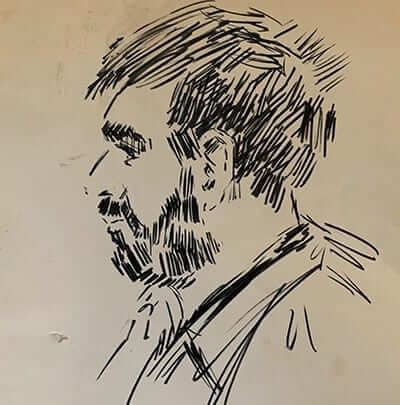
Blessed is the Abraham of our civic religion. Blessed, too, is the King whose speeches were like his sermons: a summons to testify—and a testament of service—in the fields of battle and in the streets of war, where, armed only with the force of love, he marched to glorify the Prince of Peace and the majesty of Lady Justice; to overcome not the separation of church and state but the segregation of the races by the Southern states; to expose, also, the hypocrisy of the North and the hatred within these United States; to know what he had seen, and to tell us where we would go—to the promised land.
Neither Abraham Lincoln nor Martin Luther King, Jr. made it there with us.
Each has his own memorial. Each has a day in his honor. Each shall have an everlasting name so long as America endures, so long as we direct what others seek to destroy: history. Because, in the end, not even murder—not even the shattered skull of a president or the severed jaw of a preacher—can satisfy the enemies of freedom.
Let us focus on the greatness of King instead.
Let us accept him as he was; as each of us is: flawed.
He was a great man and a good Christian, not the reverse, because it was harder for him to serve God than it was to convince Caesar to render unto man—to render unto all men, black men and white men, Jews and Gentiles, Protestants and Catholics—the things that were God’s in the first place.
His fellow clergymen may have been better husbands and fathers. But their extremism in defense of moderation was a vice, which made their refusal to pursue justice no virtue.
They were not bad men, nor were they defenders of the evil that men do, but their words of caution did nothing to stop the murder of blacks or the bombing of black churches. Their words were a form of moralistic restriction: enough for blacks to survive, but too little for them to live. It was a diet of morsels, not meals, designed to lower the temperature of the black body politic—to replace the fierce urgency of now with the coldness of later—so blacks could suffer less, so they could suffer longer, until they suffered no more. It was a diet for dying.
King asked for more than crumbs.
He asked for no more than what all Americans deserved.
If he sounded radical it was because of how radical his appeal to reason—and religion—sounded to the most unreasonable of men: the politicians and policemen, the sheriffs and shopkeepers, the vigilantes, and the agents of violence.
To them, the Constitution was unsound; the Declaration of Independence untrue; the Emancipation Proclamation unfounded.
And yet King loved them just the same. He loved them because he was a Christian. He was a Christian who believed in a God of love and redemption. He died for his beliefs.
That he died a believer, that he knew he would die a young man, that he died the day after his last sermon, that he was happy the night before—not worried about anything, not fearing any man—was because his eyes had seen the glory of the coming of the Lord.
He died knowing that freedom would ring from every village and every hamlet, from every state and every city.
He died knowing that the day would come when we would join hands and sing in the words of the old Negro spiritual: “Free at last. Free at last. Thank God Almighty, we are free at last.”
Photo credit: Bettmann Archive/GettyImages

